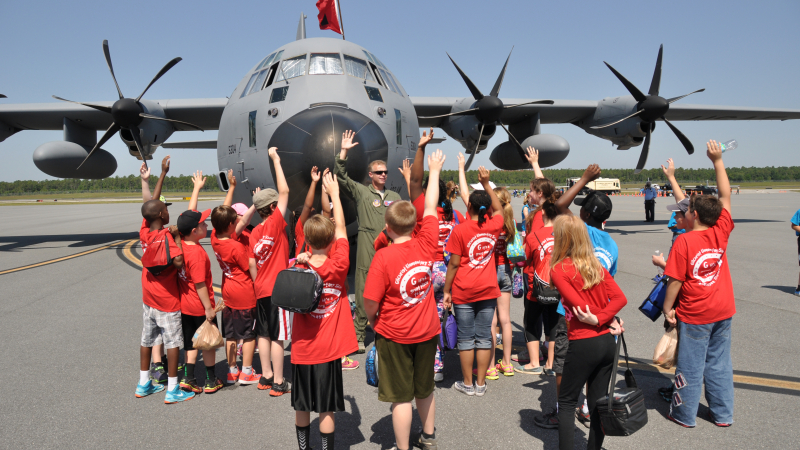At Education Council meetings, NOAA educators and partners share projects and activities, get feedback, and make connections.

Membership
Council members represent NOAA's line offices and staff offices, including special representation for offices whose education activities are specifically authorized by statute.
Chair: Louisa Koch - Director of NOAA Education Vice Chair: Christos Michalopoulos - Deputy Director, Office of EducationExecutive Secretariat: Andrea Sassard & Will Lyons - Office of Education
Voting seats
Some voting members have designated a representative to serve as a secondary point of contact for Council-related activities:
Bay Watershed Education and Training ProgramMembers: Bronwen Rice, Jacqueline Laverdure
Climate Communications, Education and Engagement Division, NOAA ResearchMember: Frank Niepold, Todd Christenson
Coral Reef Conservation ProgramMember: Vacant
Marine Debris Program, National Ocean Service Member: Emma TongeRepresentative: Alexandria Gillen
National Estuarine Research Reserve System & Office of Coastal Management, National Ocean ServiceMembers: Stacy Cummings
National Marine Fisheries Service - At LargeMembers: Kate Naughten, Bart Merrick
National Ocean Service - At LargeMember: Bruce Moravchik, Symone Barkley
National Sea Grant Program, NOAA Research Members: Joshua Brown, Maddie KennedyRepresentative: Tina Miller-Way (Mississippi-Alabama Sea Grant Consortium)
National Weather Service - At LargeMember: Mary Fairbanks
NOAA Ocean Exploration Member: Kristen CrossettRepresentatives: Susan Haynes
NOAA Research - At Large Members: Eric Hackathorn, Mike WalkerRepresentative: Claire Montgomery
NOAA Satellites & Information - At Large Member: Ryann AgbasiRepresentative: Rafael DeAmeller
Office of Education - Higher EducationMember: Natasha White
Office of Education - K-12/Informal EducationMembers: Carrie McDougall, Sarah Schoedinger
Office of National Marine Sanctuaries, National Ocean ServiceMembers: Kate Thompson, Tracy Hajduk
Teacher at Sea Program, National Marine Fisheries ServiceMember: Jennifer Hammond
National Weather Service Field Education RepresentativeMembers: Kurt Kotenberg, Erik Heden
Advising seats
NOAA Budget Office NOAA Central Library Office of CommunicationsOffice of Legislative and Intergovernmental Affairs
Terms of Reference
The Terms of Reference describe the guiding principles of the Education Council. They were last updated in 2017.
Purpose
The Education Council is the primary forum for discussing ideas and proposals for NOAA's education activities and priorities. The Education Council:
- Provides advice and counsel to the Under Secretary on matters pertaining to education
- Coordinates education activities across NOAA
- Ensures that NOAA’s education programs and activities are based on NOAA-related science
- Works with external partners to promote education efforts that directly and indirectly benefit the NOAA mission
In conjunction with NOAA's Office of Education, the Council develops and monitors the implementation of the Education Strategic Plan and makes recommendations to NOAA leadership on all aspects of NOAA's educational activities. This includes the development of any relevant documents and reports in support of these activities.
Roles and responsibilities
NOAA's Office of Education serves as the Executive Secretariat for the NOAA Education Council by scheduling meetings, developing agendas based on input from Council members, and keeping records of proceedings. The Council meets monthly, or as needed. The Council may authorize the formation of task-specific working groups.
Council Members contribute to the development of recommendations through discussion at meetings, review of materials, and participation in working groups.
Decision making process
Decisions will be accomplished by voting. Each council member can vote in favor, against or request additional discussion. The Chair will strive for consensus on every issue. The Chair maintains 51% of the vote, therefore the final decision is made by the Chair when consensus is not achieved.
New membership criteria
New voting Council members must:
- Represent sustained, significant education programs
- Demonstrate a high level of education capacity (with steady, documented history and/or budget continuity)
- Bring a capability that benefits the Education Council and broader NOAA community
- Have support from appropriate NOAA leadership
- Spend a significant portion of time dedicated to education
- Represent programs that support the NOAA Education Strategic Plan
- Agree to implement the NOAA Education Monitoring and Evaluation System

